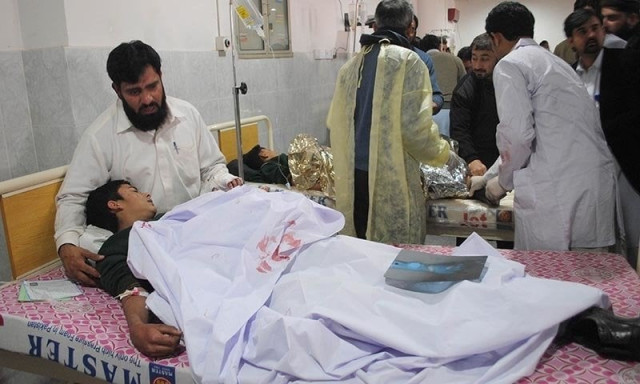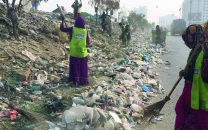Healthcare sickened by complacency
Despite an increase in the health budget, prevention and treatment facilities for low-income patients remained inadequ

As 2024 approaches its end, a regrettable roundup of the performance of the Sindh government in the domain of public health unveils a disturbing conclusion. Basic healthcare is a luxury not many ailing people can afford in Karachi.
In a city with a massive population of over 30 million, only 6,350 beds have been allocated in government hospitals, where no additional facilities have been provided over the past five years. Furthermore, no infectious disease including, dengue, malaria, chikungunya, and acquired immunodeficiency syndrome (AIDS) could be eradicated in Sindh, including Karachi.
According to Dr Akram Sultan, a health expert, the number of beds in government hospitals has remained unchanged since the past several years, while the number of patients coming and undergoing treatment in our hospitals is continuously increasing. "When the government increases the budget by 10 per cent every year, the number of beds in hospitals should also increase," said Dr Sultan.
Dr Khalid Bukhari, Medical Superintendent (MS) at the Civil Hospital reported a 25 to 30 per cent increase in the number of patients at the hospital, which has a capacity to admit only 2,000 patients. "This is despite the fact that the medicine budget for 2023-24 was Rs1.95 billion. However, despite the growing demand, there has been no increase in the number of beds at the hospital," he revealed.
Likewise, the Jinnah Postgraduate Medical Centre (JPMC) also witnessed a significant increase in the number of patients, with a rise of 15 to 20 per cent noted in 2024. "The hospital has a total of 1,800 beds, while the medicine budget was Rs15.85 billion in 2024," said an official from JPMC, who confirmed that no new beds had been added.
According to Dr Jamil Mughal, MS at the Lyari General Hospital, the hospital with just 700 beds experienced a significant increase in the influx of patients, which grew by 30 to 40 per cent in 2024. "The hospital's medicine budget also saw a 10 per cent increase, with Rs370 million allocated for medicines. However, the current medicine budget has become insufficient due to a 30 to 40 per cent increase in the price of drugs," informed Dr Mughal.
Dr Jamil Abbasi MS at the Abbasi Shaheed Hospital (ASH) Karachi shared similar concerns, stating that the hospital's medicine budget was Rs190 million for 2024. "Despite the number of patients increasing by 25 per cent this year, the hospital did not increase its bed capacity, which remains 1,100," said Dr Abbasi.
"From September to November every year, the dengue season peaks, but till date we have not been able to start an effective fogging campaign to eliminate mosquitoes, due to which thousands of people are dying every year from mosque-borne illnesses," highlighted Dr Sultan.
The dengue program in Karachi has been practically inactive since 2020 despite a continuous increase in its budget every year. In 2021-22, the budget for the dengue program was Rs50.88 million, which was increased by Rs8 million in 2022-23 by the Sindh government. Furthermore, in the current fiscal year 2023-24, the budget for the dengue program was increased by 3 million to 61.6 million. However, despite this significant allocation of funds, the spraying campaign could not be initiated in Karachi, leaving the people of Sindh, including Karachi, vulnerable to dengue.
As a result, from 2020 to August 2024, a total of 37,000 people were reported to be infected with dengue while more than 100 people lost their lives to the disease over the past four years. Additionally, the number of patients infected with the HIV virus in Pakistan has reached 220,000. Furthermore, 12 people died from Naegleria fowleri in 2023 while eight people lost their lives after being infected with the disease in 2024.
"In the future, we have to strengthen and activate the primary healthcare system established in the rural areas of interior Sindh and Karachi in order to eliminate and treat the diseases plaguing the health of locals in Sindh," concluded Dr Sultan.



















COMMENTS
Comments are moderated and generally will be posted if they are on-topic and not abusive.
For more information, please see our Comments FAQ